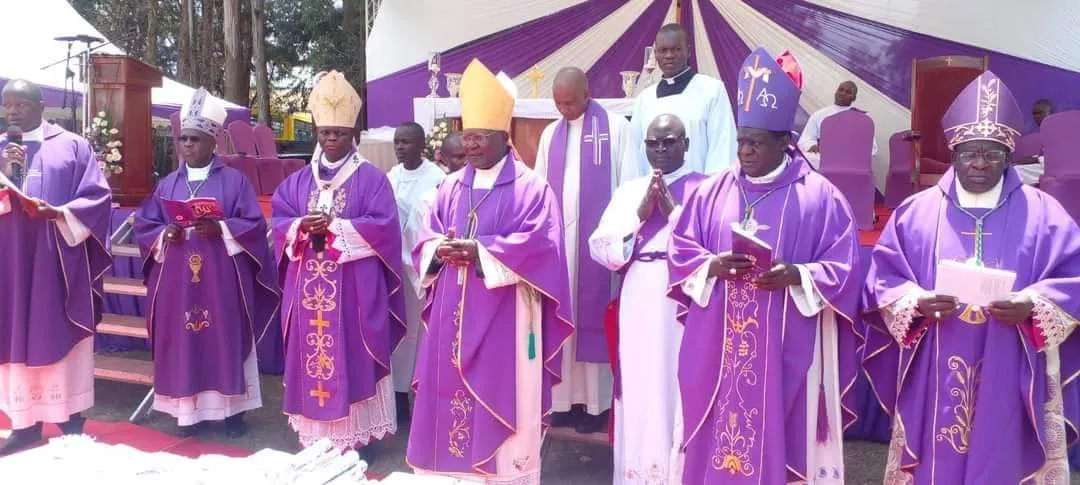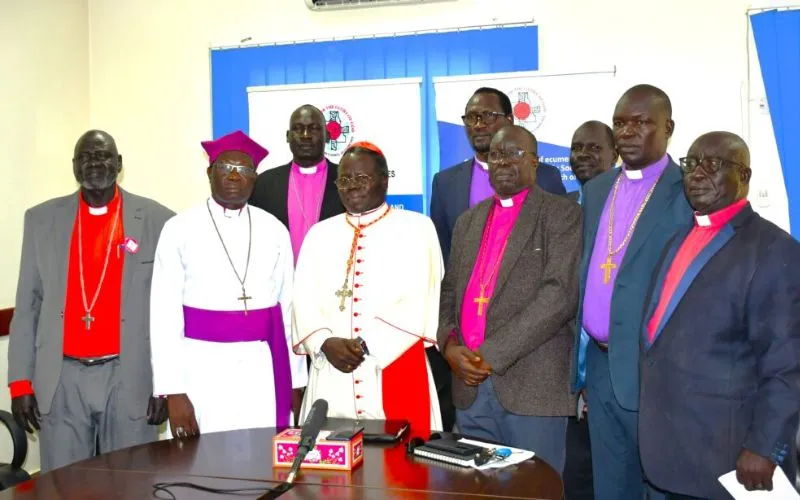Mental wellness can be achieved “by creating favorable and acceptable living conditions including taking care of mother nature that gives us a sense of security and addressing rising cases of depression and being overstressed,” they said.
During the third week of Lent, Kenyans will be guided by the theme, “Youth: The Hope of Our Society”.
KCCB members say, “Another critical question we must ask ourselves is what is the present and the future of our youth.”
“Positive social change is meted out by people who had a desire from their youthful age to make the world a better place to live in. These are the people who start to seek justice and peace from a tender age. They want to see everyone around them as fellow human beings regardless of tribe, race, or social status,” Catholic Bishops in Kenya say.
On Economic Justice, the theme for the fourth week of Lent 2023, KCCB members say they find it regrettable that Kenyans are finding it hard to make ends meet.
(Story continues below)
Kenya, they say, has “a huge wasted resource in the form of unemployed but educated men and women.”
“As we reflect on economic justice, we also note with concern that corruption in Kenya is deep-rooted, even small children may be contaminated by the virus even before they know what it is. Corruption is a vice. Every year the auditor general released a report showing corruption thrives not only at a national level but also in some counties,” KCCB members say.
They call on all Kenyans, especially the youth, to fight graft.
“All of us have to fight corruption, in particular, it is in your interest as a youth to start fighting corruption at your own level. It might be the beginning of saving and improving your future,” KCCB members say.
During the final week of the 2023 Lenten Season, Kenyans have been asked to reflect on Ecological Education.
“Climate justice is a strong global call to look at the environment around us, the protection of the ecosystem, and the appreciation that nature deserves as a matter of right and not simply a choice. Destroying forests, logging, destroying bushes, dumping, and all forms of environmental carelessness impact negatively on human life and that of other living things,” KCCB members say.
They add that humanity continues to contribute to climate change and its effects are seen in the flooding, unpredictable droughts, swelling of lakes and oceans, and the drying of rivers.
There needs to be “continued education on ways to ensure proper agricultural methods including seed production, food storage, distribution, and consumption for a healthy nation,” Catholic Church leaders in Kenya say.
“Bring this education to the grassroots where the impact of an ecological education is most needed,” they add.
KCCB members also urge the Kenyan government to address continued land subdivisions. They say, “Land does not grow and therefore continued land subdivisions in densely populated areas call for an urgent response.”
“Appropriate land use contributes immensely to food security,” they say.
KCCB members add, “The graces of our Lenten campaign should be seen in the little actions we do throughout this period of prayer, fasting, and committing to actions within our abilities.”
Magdalene Kahiu is a Kenyan journalist with passion in Church communication. She holds a Degree in Social Communications from the Catholic University of Eastern Africa (CUEA). Currently, she works as a journalist for ACI Africa.





